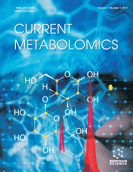Abstract
Globally, cancer is one of the leading causes of death, so the development of strategies for an early diagnosis of cancer is of great importance. Biochemical alterations precede morphological changes in cells and tissues, so studying cancer metabolome seems like a reasonable approach for early diagnosis, prognosis and to follow treatment progression. Fourier-Transform Infrared (FTIR) spectroscopy is a valuable tool for studying the metabolome of biological samples, such as cancer cell lines. Unlike staining procedures and other histopathologic approaches, this technique is rapid, nondestructive and does not require reagents. The spectral differences that result from probing the biochemical composition of cancer and normal cells are indicative of distinct metabolic profiles, which allow the discrimination of different cells. Using FTIR spectroscopy and multivariate statistical analysis, several alterations concerning the content of lipids, proteins, nucleic acids and carbohydrates have been identified in cancer cells, some of which can be regarded as potential biomarkers. This review focuses on FTIR spectroscopy as a metabolomics tool to study and characterize cancer cell lines.
Keywords: Cancer, metabolomics, metabolic profile, FTIR spectroscopy, cell lines, multivariate analysis.
Graphical Abstract
 44
44 3
3








.jpeg)








